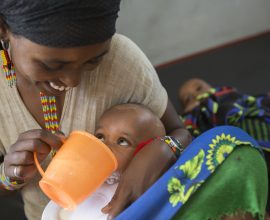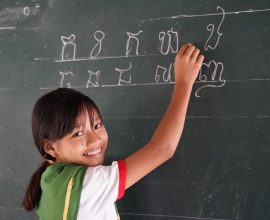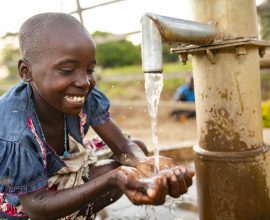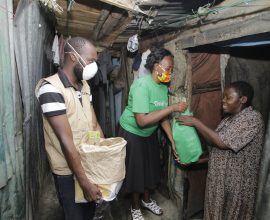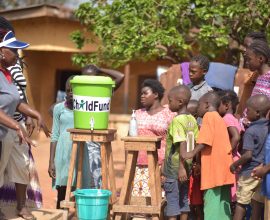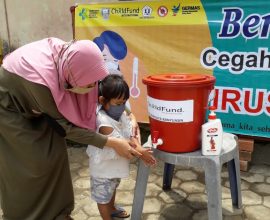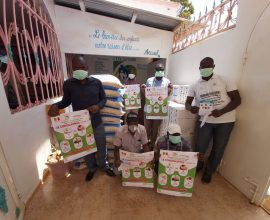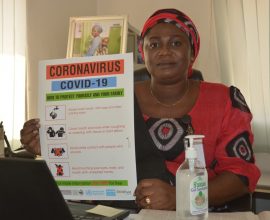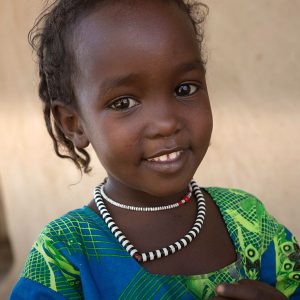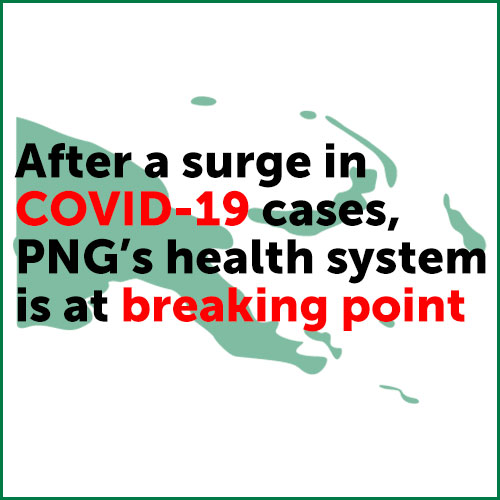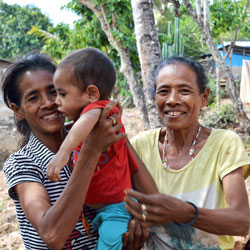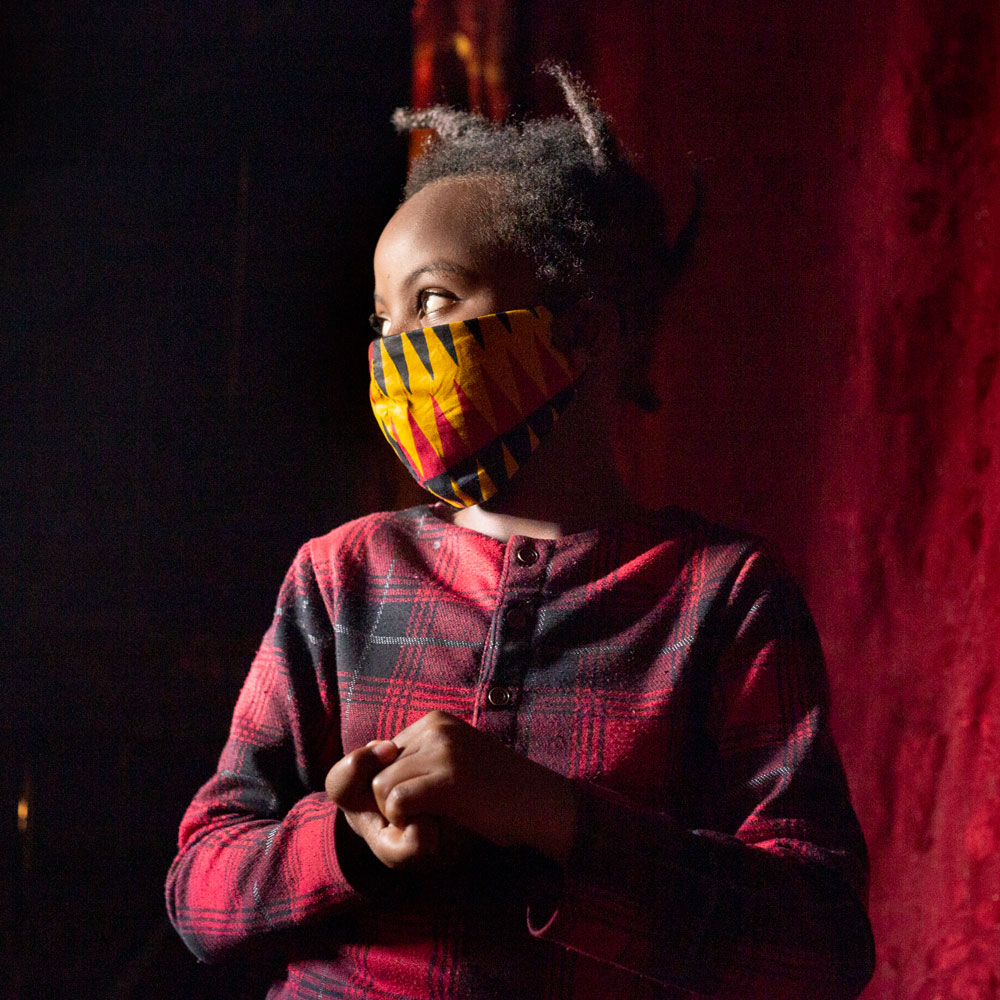As COVID-19 continues to unfold in the world’s poorest places, ChildFund’s $32 million global appeal is providing essential support to the children and families who are most vulnerable during this ongoing crisis.
Your donation will go to where it has the greatest impact and can be used across these vital initiatives:
Select your payment method:
Use our tax calculator to estimate the potential tax benefit of your donation.
Calculate your tax benefit
Enter your donation amount to estimate your potential tax benefit.
If you donate
$On a before tax income of
$The actual cost of your donation is
$xx.xx a xxxx
Because you save
$xx.xx a year on tax
This table is based upon 2020-2021 ATO individual Income Tax rates. The above rates do not include the Medicare Levy of 2%. The exact level of your tax deductibility will vary depending on your present financial circumstances. Please seek assistance from an independent taxation professional for formal guidelines.
Vulnerable children and families are caught in this deadly crisis. They need our help, and every minute counts.
The global health, social and economic impact of the COVID-19 pandemic cannot be underestimated.
The virus knows no borders: we are a daily witness to increasing rates of infection, school and business closures, strict social isolation orders, and rising unemployment across the world.
In many countries, health systems have been overwhelmed with rising cases and an ongoing struggle to source vital medical equipment.
No family is immune to the repercussions of this health crisis, including our thousands of Australian supporters. We want you to know that our thoughts are with you during these immensely difficult times.
At ChildFund, we are also deeply concerned about the impact this pandemic will have on the children and families with whom we work; communities who are already vulnerable due to poverty.
COVID-19 is impacting children around the world
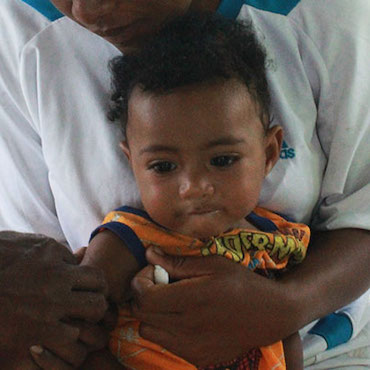
People in remote and rural areas may not have access to nearby health facilities if they contract the virus. Children already have weakened immune systems due to malnutrition and diseases like tuberculosis, making them less able to fight a new infection.
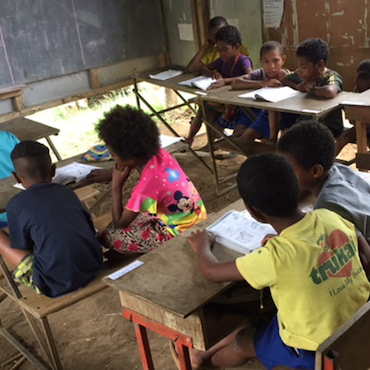
Lockdowns mean children are unable to attend school. Vocational training programs for youth are on hold. We know that access to education and learning opportunities is vital for young people if they are to break the cycle of disadvantage.
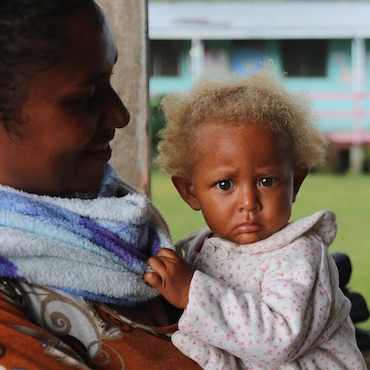
A reduction in income can mean that families are forced to cut back on spending in essential areas such as education, food, and healthcare for their children. Families risk sliding back into extreme poverty.
Our development programs have adapted to face COVID-19.
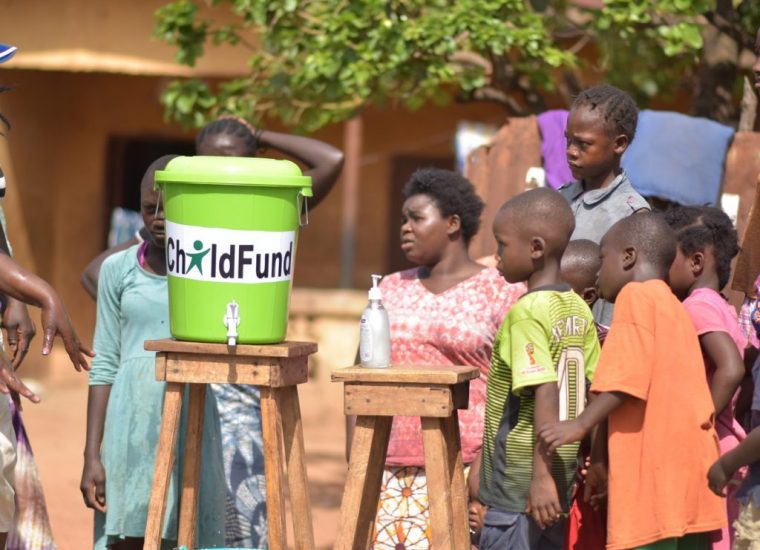
Long-Term Development Programs
ChildFund’s long-term development programs will be crucial in helping affected communities once the immediate danger of the virus has passed.
We are already working in close partnership with families who are struggling to provide the basic needs for their children. Now, our programs have been adapted to face this new challenge.
More updates about our operations during the COVID-19 pandemic
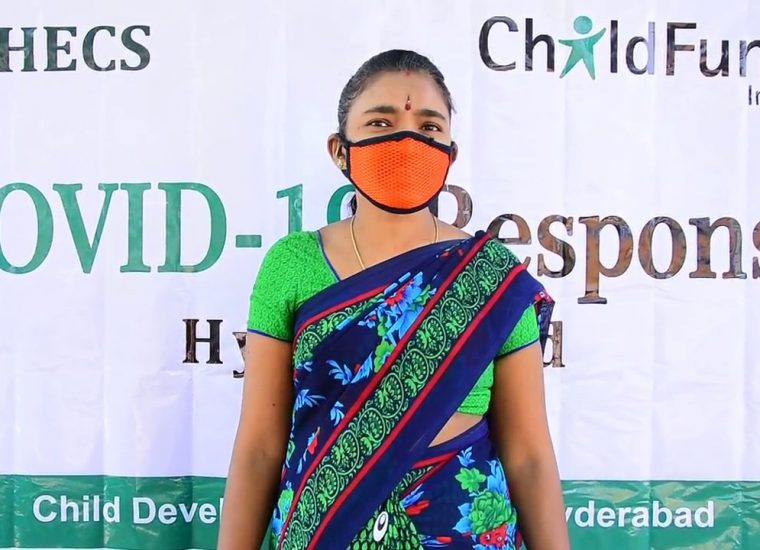
India
Almost 18 million cases of COVID-19 have now been reported in India, as the country grapples with a widespread second wave of infection. The new surge has nearly crippled the medical infrastructure, resulting in shortages of hospital beds, oxygen, and other critical medical supplies. ChildFund India is providing emergency assistance to communities, including increasing awareness about COVID-19 prevention behaviours, distributing hygiene kits, and ensuring frontline workers have personal protective equipment. ChildFund is supporting the most vulnerable children and families with food and psychological support; and distributing educational materials for children who are prevented from attending school due to lockdown measures. ChildFund is also providing logistical support as part of the government’s vaccine rollout process.
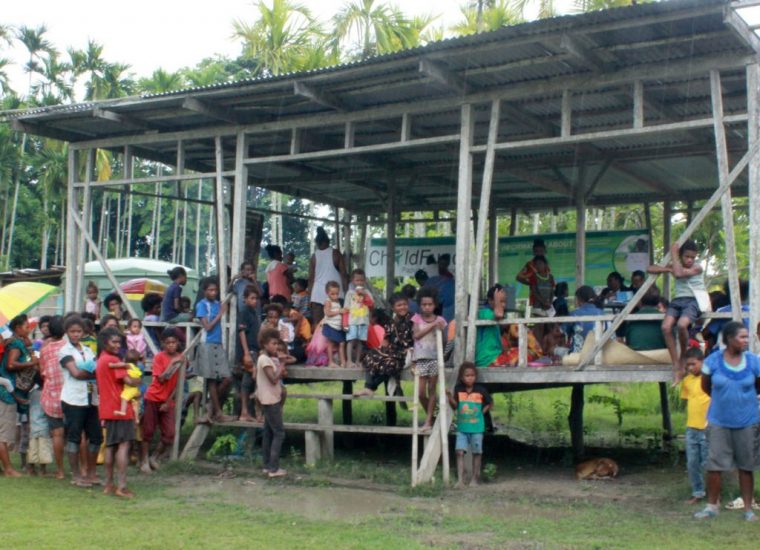
Papua New Guinea
The escalating COVID-19 situation in PNG threatens to overwhelm the country’s health system. Many hospitals have reached capacity, and infection rates are expected to grow exponentially. ChildFund is facilitating health outreach clinics in rural and remote communities, to ensure children and families have access to basic health services. Birth delivery kits are being distributed in regional areas to support women who are now unable to birth in a health facility due to a lack of beds, staff and PPEs. Our village health volunteer networks are continuing to provide information on COVID-19 prevention, and to overcome stigma and misinformation about the disease.
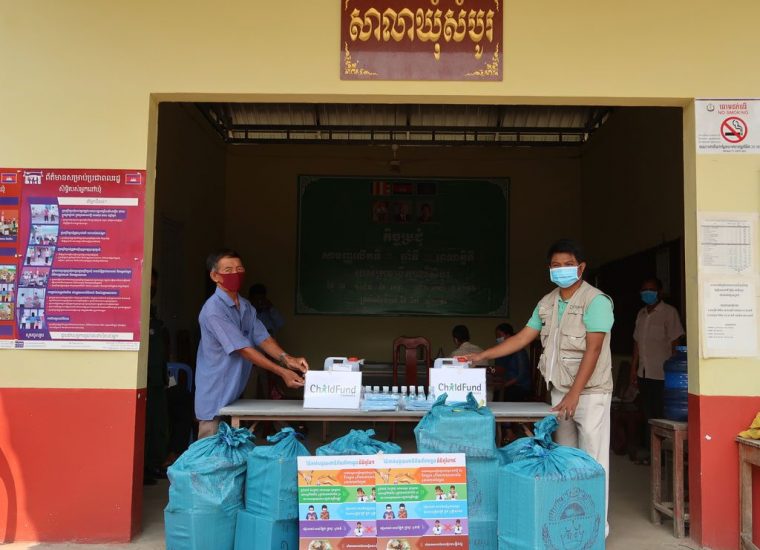
Cambodia
With schools closed and much of the country in lockdown, ChildFund Cambodia has been quick to adapt its community development programs to ensure the most vulnerable children and families have the resources and knowledge they need to reduce the spread of the COVID-19 virus. To ensure communities are better equipped to deal with a potential outbreak, ChildFund Cambodia staff have delivered COVID-19 prevention kits to more than 20,000 people in nine rural poor districts. These kits include soap, hand sanitiser, thermometers, face masks and hygiene information.
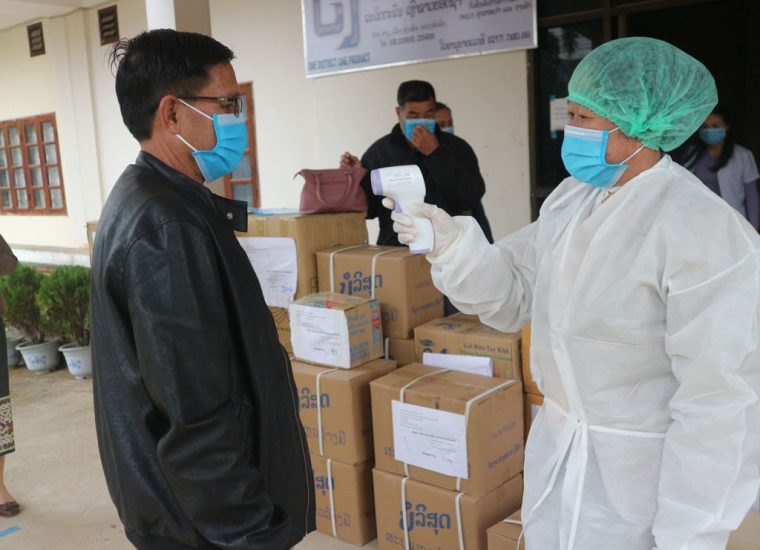
Laos
ChildFund Laos is distributing critical medial supplies to provincial and district health centres in Houaphanh Province, one of the country’s most remote regions. This includes masks, soap, and alcohol solutions for hand-washing, and thermometers.
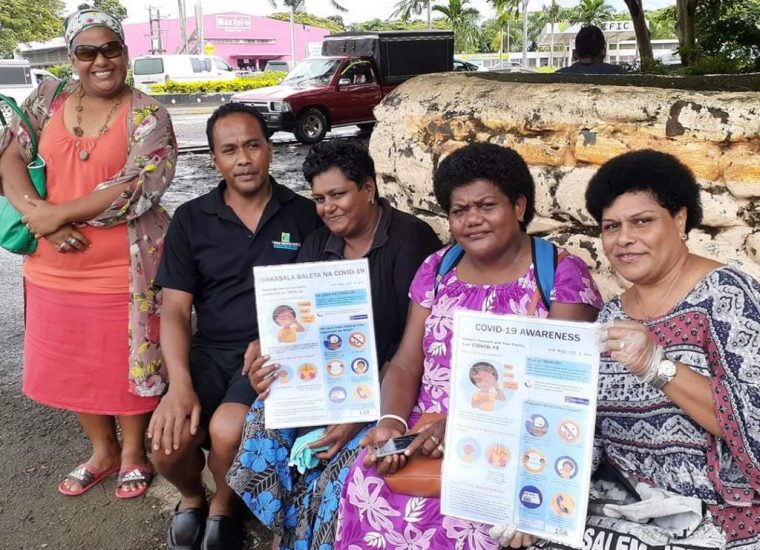
Fiji
ChildFund Australia is working with the Fiji Council of Social Services, and other local partners, to ensure communities are aware of the transmission risks, and understand the importance of hand washing, physical distancing and staying at home wherever possible. Our newly trained team of community outreach volunteers are meeting and talking with local communities, distributing flyers on hygiene practices, and helping people understand the need to protect themselves and others.
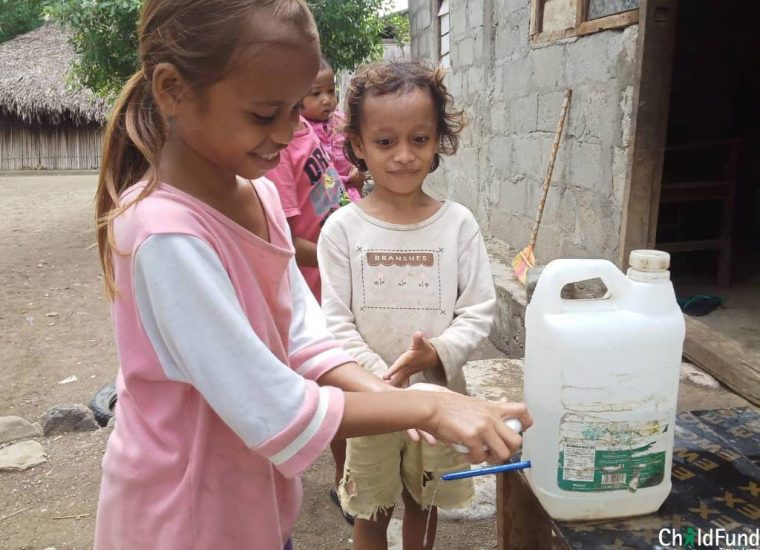
Timor-Leste
ChildFund Timor-Leste is helping children to stay safe from COVID-19 in rural Lautem Municipality by adapting its health and community outreach programs to teach children and families about the importance of social distancing, and how to practise proper hand washing and hygiene. Coaches from our ChildFund Pass It Back program are also learning how to keep their communities safe. After taking part in training organised by the Red Cross of Timor-Leste, they can now take this knowledge back to their local communities, and help families understand important infection control techniques.
Every preventative action helps stop the spread of this virus
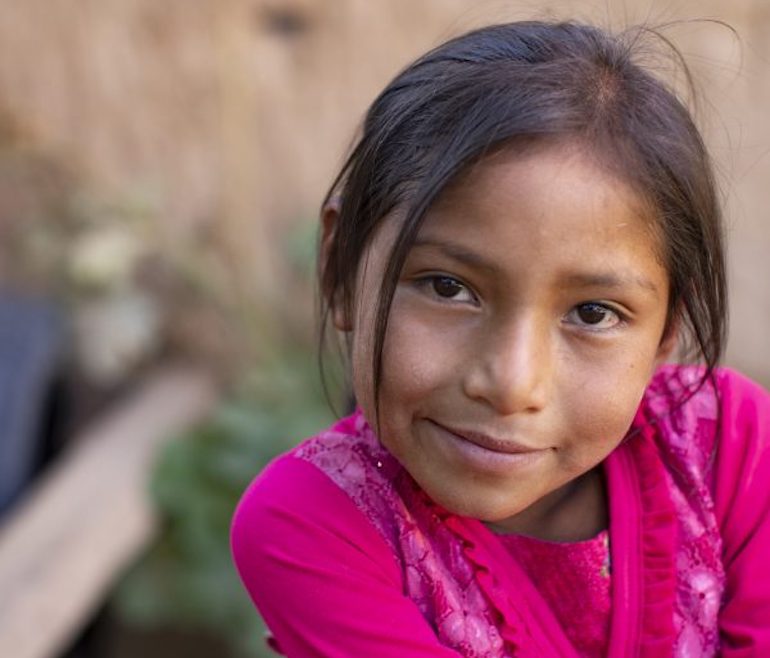
As you know, every preventive action helps, and every person can make a difference to stop the spread of this virus.
We are all in this together: every child, every adult, every community in our global neighbourhood.
They need our help, and every minute counts.
Your gifts will be used where the need is greatest to support ChildFund’s response to the COVID-19 pandemic in developing communities around the world. In the unlikely event that funds raised exceed the amount needed for this appeal, the additional funds will be used to support the work of ChildFund Australia in the Asia-Pacific region.
Frequently Asked Questions
Complete the form below to subscribe to our newsletter.
If you’re filing your tax return for the first time, have never claimed donations or donated at all, you’re probably wanting to know more about how you can claim donations to charity on your taxes. We’ve answered some of the most important questions about tax deductible donations below.
Tax deductible donations are about giving back, to get back. Donating to ChildFund Australia will help children in urgent need of support. You’ll be helping the most vulnerable children across South East Asia and Africa, and you yourself will be able to receive a greater refund on your tax return.
You can submit any tax deductible donation over $2 as part of your tax return.
You can only claim for donations which are monetary gifts, given without the promise of something in return. Raffle tickets, charity chocolates, events and other donations of this kind, are not tax deductible.
At ChildFund, all regular giving donations over $2 are tax deductible including child sponsorship, community sponsorship and donations to appeals. A few donation categories are not tax deductible, for example, birthday gifts to your sponsored child and are not included on your annual tax receipt.



